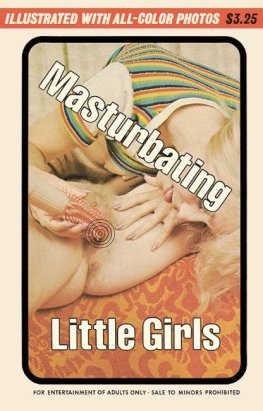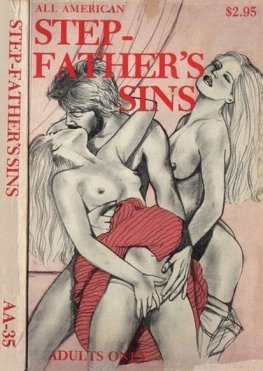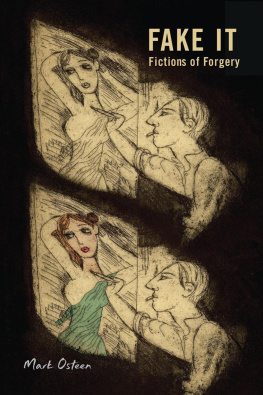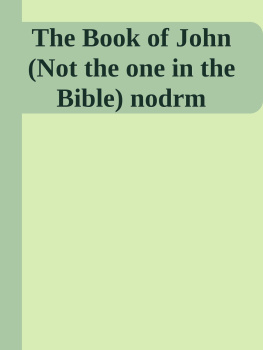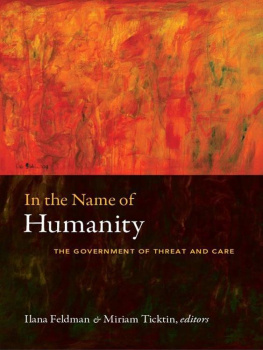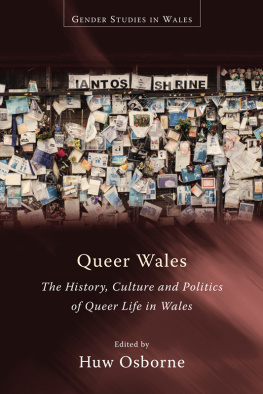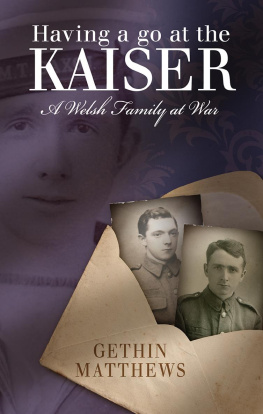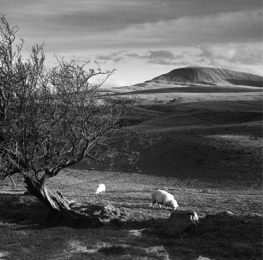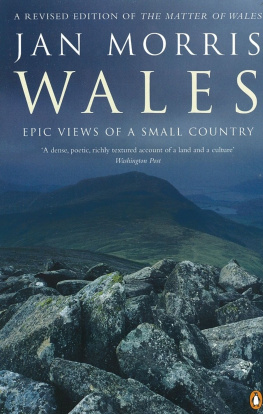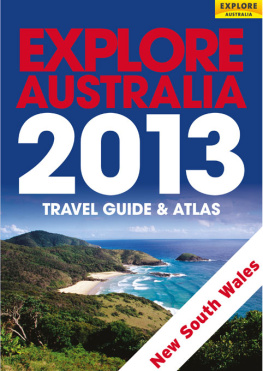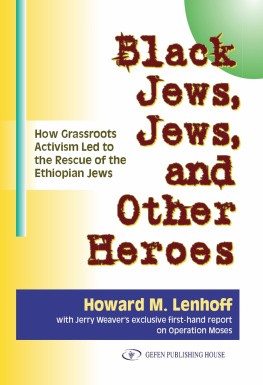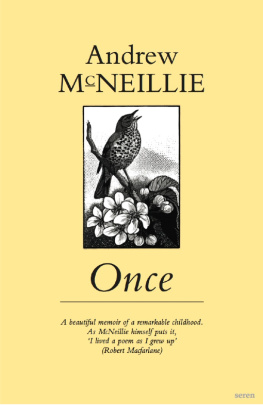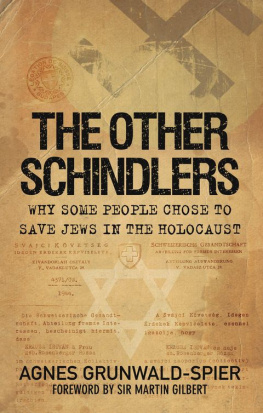THE JEWS OF WALES
THE JEWS OF WALES
A History
CAI PARRY-JONES
Cai Parry-Jones, 2017
All rights reserved. No part of this book may be reproduced in any material form (including photocopying or storing it in any medium by electronic means and whether or not transiently or incidentally to some other use of this publication) without the written permission of the copyright owner. Applications for the copyright owners written permission to reproduce any part of this publication should be addressed to the University of Wales Press, 10 Columbus Walk, Brigantine Place, Cardiff CF10 4UP.
www.uwp.co.uk
British Library CIP Data
A catalogue record for this book is available from the British Library
ISBN: 978-1-78683-084-5
eISBN: 978-1-78683-086-9
The right of Cai Parry-Jones to be identified as author of this work has been asserted in accordance with sections 77 and 79 of the Copyright, Designs and Patents Act 1988.
Published with the financial assistance of the Marc Fitch Fund
The publisher has no responsibility for the persistence or accuracy of URLs for any external or third-party internet websites referred to in this book, and does not guarantee that any content on such websites is, or will remain, accurate or appropriate.
Cover image: The Wartski Family of Bangor and Llandudno 1893-4, by kind permission of STORIEL.
My research on the history of Welsh Jewry has occupied me for more than half a decade. The project began as a PhD thesis titled The History of the Jewish Diaspora in Wales that was successfully defended at Bangor University in March 2014. I wish to acknowledge the important contributions made by my former PhD supervisor, Professor Nathan Abrams, as it was he who introduced me to this field of research. I would also like to thank Professor Andrew Edwards, who offered continual encouragement, guidance and support throughout my time at Bangor.
Many individuals have shared their expertise, insights and materials with me and have offered encouragement. I especially wish to thank Meic Birtwistle, Grahame Davies, Jasmine Donahaye, Colin Heyman, Glen Jordan, David Morris, Paul OLeary, Huw Pryce, Esther Roberts, Einion Thomas, Diana Soffa and Stanley Soffa, as well as the assistance of archival and library staff in both the United Kingdom and the United States.
Various bodies have provided financial support for both my research and this publication. Major funding for my doctoral research came from the Arts and Humanities Research Council, while both the Royal Historical Society in London and the College of Arts and Humanities at Bangor University generously awarded me travel grants to attend archives and conferences in both the United Kingdom and the United States. I also wish to acknowledge the substantial financial support I have received from the Marc Fitch Fund towards the cost of publishing this work. I am grateful to all bodies for their vision and generosity in funding academic research.
I thank also my immediate family Dad, Beca and Catrin for the interest they have shown in my work and, more importantly, for always telling me that I could do it. Finally, I thank all the people at the University of Wales Press who have been involved in preparing this book for publication, particularly Dr Llion Wigley. It has been a pleasure to work with them.
I dedicate this book to the Jews of Wales, both past and present, and also to the memory of two special people who are no longer with us my Nain, Elizabeth Alice Jones (19302017), who was extremely excited to see my doctoral work being published, and my mam, Meryl Elizabeth Parry-Jones (195396), who I know would have been behind me all the way.
AAC | Academic Assistance Council |
BMA | British Medical Association |
BUF | British Union of Fascists |
CAJEX | Magazine of the Cardiff Association of Jewish Ex-Servicemen and Women |
CNS | Cardiff New Synagogue |
CRO | Caernarfon Record Office |
CUS | Cardiff United Synagogue |
GA | Glamorgan Archives |
HLUS | Hartley Library, University of Southampton |
IWM | Imperial War Museum |
JC | Jewish Chronicle |
JYB | Jewish Year Book |
LMA | London Metropolitan Archives |
NWC | North Wales Chronicle |
NLW | National Library of Wales |
RCM | Refugee Childrens Movement |
SFNHM | St Fagans National History Museum |
SWMF | South Wales Miners Federation |
TNA | The National Archives, Kew |
WGA | West Glamorgan Archives |
WL | Wiener Library |
YMCA | Young Mens Christian Association |

A LTHOUGH Jewish communities have been present in Wales since 1768, we have waited more than 250 years for the first nationwide historical study of the Jews in Wales to be written. This is largely because Welsh historians have traditionally associated religious belief and practice in Wales with Nonconformity (and Anglicanism to a lesser extent) and have thus tended to ignore the historical experiences of other religious minority groups such as the Jews. Their small numbers make it difficult to fit them into conventional narratives and analysis frameworks, and they have therefore been placed outside the dominant ways of thinking about the Welsh religious landscape.
If most Welsh historians have viewed the Jewish experience in Wales as peripheral or irrelevant to major trends in their field, the same is even more true in regard to historians of British Jewry, who have shown little, if any, desire to pay attention to the histories of Jews in British nations other than England. As the disciplines name, Anglo-Jewish historiography, suggests, historians of British Jewry have focused primarily on Jewish experiences in England, with the terms Britain and England often used synonymously, as
Regrettably, some historians are reluctant to change the terminology. Todd Endelman, for instance, is unwilling to discard the term Anglo Jewish because:
it is conventional to use the term Anglo-Jewish to refer to Jews in Britain as a whole, including Jews in Scotland and Wales, even though they were not, in a strict sense, English Jews. This usage is too well established to be dropped. Moreover, since the number of Jews who lived in Wales and Scotland was never large, folding them into Anglo Jewry does not distort the overall picture.
However, while the overall picture may not be distorted by folding Scottish and Welsh Jewry into Anglo Jewry, the process certainly distorts the picture of Scottish Jewry and Welsh Jewry. As Endelman clearly points out, Scottish and Welsh Jews are not English and the particularities of their experiences would be lost if scholars took Endelmans advice. William D. Rubinstein uses the term Anglo to describe British Jewry, but as Nathan Abrams reminds us, Rubinstein uses it in a linguistic sense, as the title of his work demonstrates:





